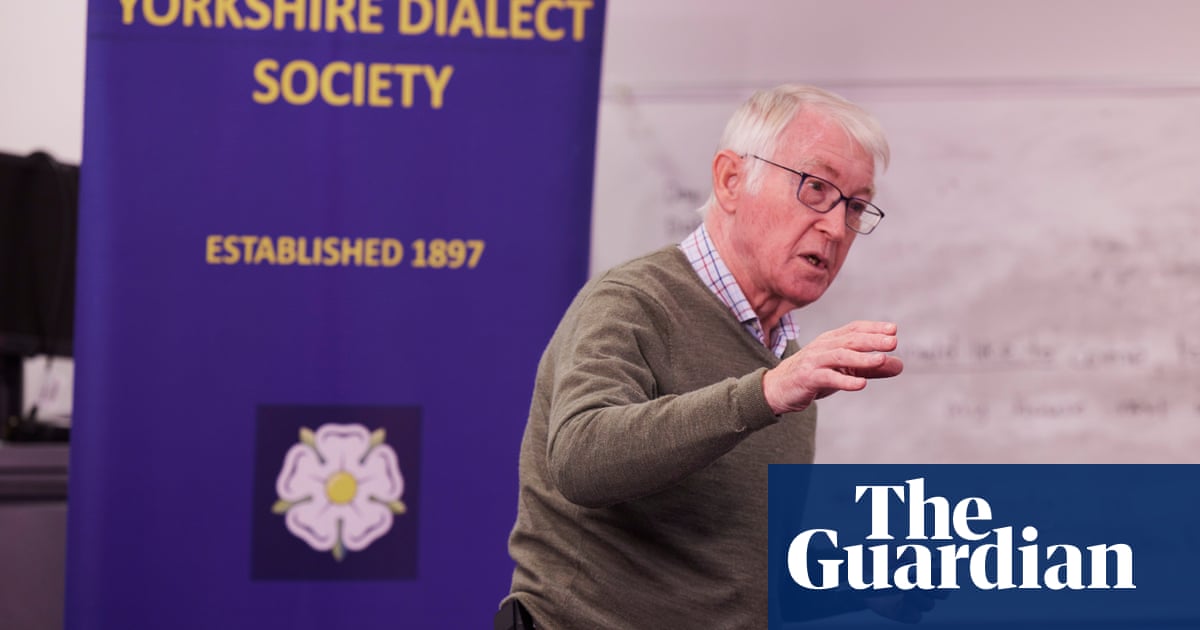The Guardian attends a session of the six-week course Let’s Talk Tyke! on adrizzly morning in Keighley
I was aware that the further north one goes in Great Britain, the more Norse there is in the local dialect. (Coming from Australia, I grew up speaking an English that has absorbed various Northern words like “dear” for expensive and “ta” (from the Norse “takk”, still used in Swedish/Danish/Norwegian/Icelandic) for thanks, and was surprised that these were uncommon in London.) I didn’t know that Yorkshire eschewed Romance loanwords in favour of a very Germanic practice of building longer words from smaller ones.
“The” Yorkshire dialect? That’s asking for trouble. There’s more than one. In fact you could argue there’s as many as there are placenames in Yorkshire. And then there are the unspoken-of hybrids on the borders to other counties, even, horrors, L**cashire. [There’s an old saying: “They’re odd in Tod” (i.e. “people in Todmorden are strange”), and that’d be why. At least partly. Straddling the border and all that.]
There’s a similar situation on the continent. Every village has its own dialect that can be radically different from the country’s standardised language, and slightly different to the village next door, and like those in Yorkshire, they’re also on the verge of extinction.
(I would like to have delivered this comment in my local dialect, but I regret that I don’t know enough of it, even if I do unwittingly use a few words and phrases here and there with family. The closest you’ll see here is the use of “there’s as many” rather than “there are as many”.)
Nah then.
Sithee.





